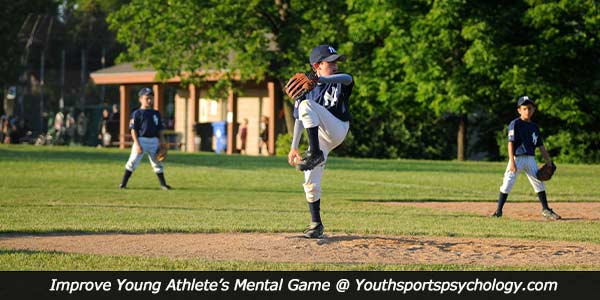Inclusivity and Teamwork Increase Confidence
It’s important to build youth sports teams that focus on inclusion; this boosts all players’ confidence and success, says Nadine Haruni, a lawyer and author of “Freeda the Frog and Her New Blue Family.” She’s also a sports mom in a blended family with five kids.
Coaches and parents should focus on creating inclusiveness and empathy for kids of color, as well as children and teens in non-traditional families, she told us during an interview with The Ultimate Sports Parent podcast. These kids can feel “different,” left out and isolated.
When everyone on a team feels comfortable being part of the team, they’re more likely to enjoy their sports experience and grow from it. Parents and coaches need to build this comfort.
“Sometimes kids hear negative things about particular races or ethnicity or religions,” Haruni says. She suggests that parents talk to their young athletes about including these players.
“It doesn’t matter what the outside looks like. It doesn’t matter if kids have different skin colors or different financial backgrounds.”
Coaches can help create inclusiveness by refraining from singling out anyone based on their skin color, religion or family structure. They should focus on team building.
One possibility would be to ensure kids from different backgrounds interact with one another during activities. “Put two Caucasian kids and two Indian kids together. Encourage them to be with people who don’t look like them,” she says.
Being inclusive also means that adults should ensure that sports kids in non-traditional families feel comfortable and confident on the team, says Haruni, who is a stepmom.
Divorced parents need to put aside their differences and attend kids’ games. It’s also a plus if stepparents support players during games.
“My husband has been part of the picture since my daughter was two and my son was five. They are now 13 and 16; he always comes to their games,” she says.
To help all kids feel included and confident, parents and coaches need to ensure young athletes feel comfortable communicating their feelings, Haruni says.
Here at the Ultimate Sports Parent, we like to remind parents about the importance of communication. Parents need to listen, especially when young athletes are upset.
Don’t try to talk them out of their feelings. Don’t try to tell them how they should feel. Just listen. If you’re a good listener, they’re more likely to open up when they’re feeling left out or upset.
Listen to the Ultimate Sports Parent Podcast
Related Articles on Kids’ Mental Game:
- The Power of Empathy in Youth Sports
- Teaching Sports Kids Pregame Plans
- Building Confidence in Young Athletes
*Subscribe to The Sports Psychology Podcast on iTunes
*Subscribe to The Sports Psychology Podcast on Spotify
Improve Your Mental Game From Anywhere In The World

We’re certain that, as a parent, you want to help your child develop confidence and discipline in sports and life. And as a sports parent, you’d love for your children to reach their potential in sports. But encouraging your child to strive for greatness without pressuring them can be a challenge.
You can get expert mental coaching with us from anywhere. Meet with us via Zoom, Skype, FaceTime or phone call. With today’s video technology, we are able to connect with athletes and coaches all over the globe.
Call Us Today to Schedule Your Free 15-Minute Session.
Find Out How Your Athlete Can Benefit From One-on-One Mental Coaching!

